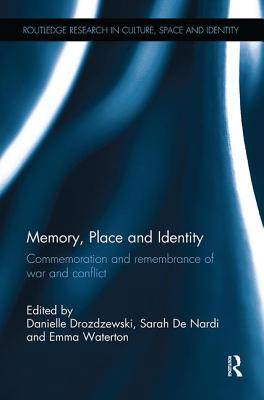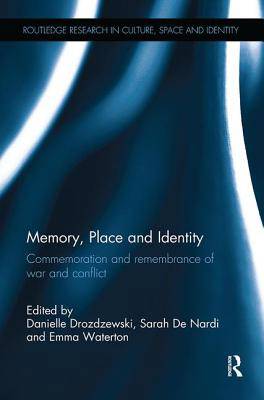
- Afhalen na 1 uur in een winkel met voorraad
- Gratis thuislevering in België vanaf € 30
- Ruim aanbod met 7 miljoen producten
- Afhalen na 1 uur in een winkel met voorraad
- Gratis thuislevering in België vanaf € 30
- Ruim aanbod met 7 miljoen producten
Memory, Place and Identity
Commemoration and Remembrance of War and Conflict
Omschrijving
This book bridges theoretical gaps that exist between the meta-concepts of memory, place and identity by positioning its lens on the emplaced practices of commemoration and the remembrance of war and conflict.
This book examines how diverse publics relate to their wartime histories through engagements with everyday collective memories, in differing places. Specifically addressing questions of place-making, displacement and identity, contributions shed new light on the processes of commemoration of war in everyday urban façades and within generations of families and national communities. Contributions seek to clarify how we connect with memories and places of war and conflict. The spatial and narrative manifestations of attempts to contextualise wartime memories of loss, trauma, conflict, victory and suffering are refracted through the roles played by emotion and identity construction in the shaping of post-war remembrances. This book offers a multidisciplinary perspective, with insights from history, memory studies, social psychology, cultural and urban geography, to contextualise memories of war and their 'use' by national governments, perpetrators, victims and in family histories.
Specificaties
Betrokkenen
- Uitgeverij:
Inhoud
- Aantal bladzijden:
- 262
- Taal:
- Engels
- Reeks:
Eigenschappen
- Productcode (EAN):
- 9781138547179
- Verschijningsdatum:
- 12/02/2018
- Uitvoering:
- Paperback
- Formaat:
- Trade paperback (VS)
- Afmetingen:
- 156 mm x 234 mm
- Gewicht:
- 390 g

Alleen bij Standaard Boekhandel
Beoordelingen
We publiceren alleen reviews die voldoen aan de voorwaarden voor reviews. Bekijk onze voorwaarden voor reviews.








